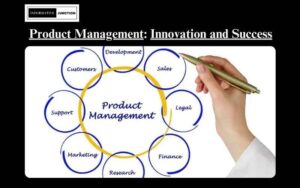In today’s complex and interconnected business landscape, ethical considerations play a pivotal role in shaping the success and sustainability of organizations. The impact of unethical business practices is far-reaching, affecting not only a company’s bottom line but also its reputation, employee morale, and long-term viability. In this extensive exploration, we delve into the intricate web of business ethics, examining the consequences of unethical behavior, and highlighting the importance of ethical decision-making in modern enterprises.
Understanding Business Ethics
Before we delve into the repercussions of unethical practices, it’s crucial to establish a clear understanding of what constitutes business ethics. Business ethics refer to the moral principles and values that guide the behavior and decision-making processes of individuals and organizations in the business world. These principles encompass honesty, integrity, fairness, and transparency, among others.
The Impact of Unethical Practices
1. Damage to Reputation
The damage to a company’s reputation is one of the most direct and serious results of unethical business practises. As a result of instantaneous communication and social media, word of unethical actions can quickly spread. When a firm gets involved in a scandal, fraud, or unethical behaviour, it loses the trust of its consumers, partners, and investors. Repairing a tarnished name takes time and effort.
2. Legal Consequences
Unethical practices often have legal ramifications. Violations of laws and regulations can result in fines, legal battles, and in extreme cases, criminal charges. The legal fallout from unethical behavior can lead to significant financial losses and, in some cases, the downfall of the organization.
3. Erosion of Employee Morale
Unethical behavior within an organization can have a detrimental effect on employee morale. When employees witness unethical conduct at the management level, it can lead to disillusionment, mistrust, and a decline in job satisfaction. This, in turn, may result in increased turnover rates and a decrease in productivity.
4. Loss of Stakeholder Trust
Stakeholders, including shareholders, employees, customers, and suppliers, place their trust in an organization to act ethically and responsibly. Unethical practices erode this trust, potentially causing stakeholders to disengage from the company. For shareholders, this can lead to a decline in stock prices and the loss of investment.
5. Decline in Market Value
The repercussions of unethical behavior are often reflected in a company’s market value. When news of unethical practices becomes public, the stock price of the organization may plummet, resulting in significant financial losses for investors.
6. Increased Regulatory Scrutiny
Unethical practices can attract the attention of regulatory bodies and government agencies. The increased scrutiny can lead to stricter regulations and oversight, adding operational complexities and compliance costs to the organization.
The Role of Ethical Leadership
Ethical leadership is paramount in preventing unethical behavior within organizations. Leaders who set a positive example, prioritize ethical decision-making, and establish a culture of integrity can significantly reduce the likelihood of unethical practices occurring.
Promoting Ethical Practices
To navigate the complex landscape of business ethics, organizations must adopt proactive measures to promote ethical practices:
1. Ethical Training and Education
Organizations should provide ethical training and education to employees at all levels. This includes familiarizing employees with the company’s code of ethics and providing guidance on how to handle ethical dilemmas.
2. Establishing Clear Policies
Companies should develop and communicate clear ethical policies and guidelines. These policies should address various aspects of business ethics, including conflicts of interest, bribery, and fraud prevention.
3. Whistleblower Protection
Whistleblower protection programs are essential for creating a safe environment for employees to report unethical behavior without fear of retaliation. Encouraging employees to speak up helps organizations address issues before they escalate.
4. Ethical Decision-Making Frameworks
Organizations can implement ethical decision-making frameworks that guide employees in evaluating the ethical implications of their actions. These frameworks provide a structured approach to ethical dilemmas.
Conclusion: Navigating Ethical Waters for Organizational Success
In today’s business landscape, ethical considerations are not just a matter of good practice; they are integral to an organization’s survival and success. The impact of unethical business practices can be catastrophic, affecting reputation, legal standing, employee morale, and financial stability. Ethical leadership and a commitment to promoting ethical behavior are essential in preventing unethical conduct. By fostering a culture of integrity and providing the necessary tools and training, organizations can navigate the complex waters of business ethics and thrive in an environment built on trust and responsibility.
Connect with Informative Junction
Click Here if you want to read more Interesting Blogs.




